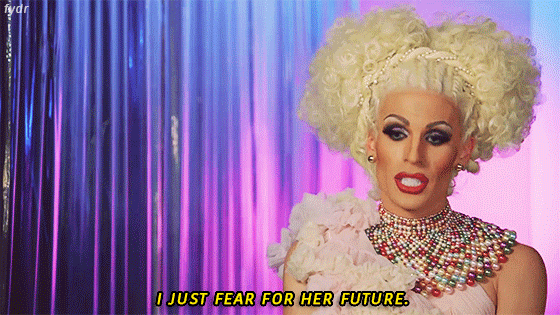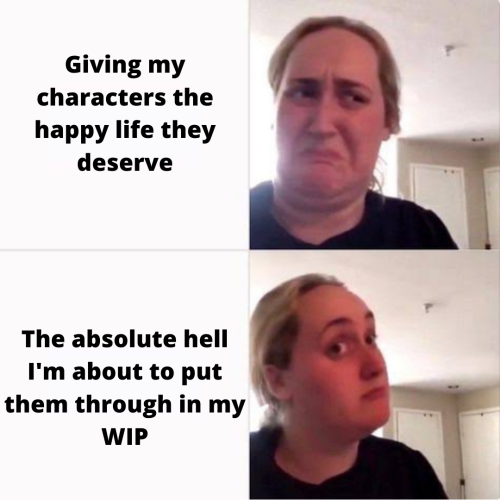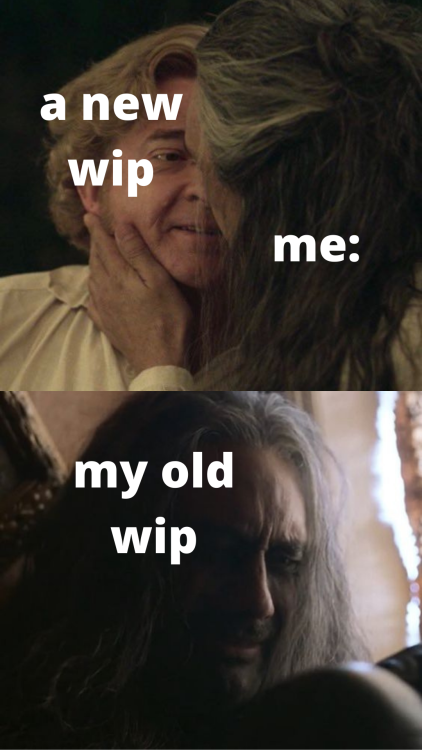#writer blog
Newsfeed #127 June 13, 2021 (13 Nárië)
I have NO issues in any representation of the works of J.R.R. Tolkien. I do not care if it is animated, live action, literary or spray painted on the side of a building. Expression is the highest form of flattery.
What I have a problem with is a representation that does not lead back to Tolkien. I purposely created “The Kingdom of the Woodland Realm Trilogy” and its subsequent standalone books for the sole purpose to lead back to Tolkien’s original works. When someone says to me, “reading your story has made me want to read (or reread Tolkien),” my mission has been fulfilled.
I do not do what I do for money. I do not do it for notoriety which I have gained worldwide. I do it because of the love of reading and out of respect for my literary hero J.R.R. Tolkien. In the early days, when people confused my story with Tolkien, that upset me greatly. First of all, I do not think I sound like Tolkien as my story is told in the first person. Granted, I studied his language patterns and felt the need to take out anything “modern” in order to ensure my stories maintained a certain believability.
I have created characters when necessary but never once have I ever taken the works of Tolkien out of context. I “write around” the original material. I work with the original material. I am always referring back to the material to make sure I am capturing the essence of Middle-Earth as Tolkien created it. I made that promise to my father and Tolkien the very second I decided to write my story. I took the path less traveled at a time when Middle-Earth fan fictions on Tumblr were often filled with vulgarity and graphic sex.
I was on the last rung on a ladder of stories when I began “The Saga of Thranduil”. At any time, I could have turned the tide for more attention, but I refused. I could not bring myself to lessen the work of the man inspired me to write fantasy when I was a child. I knew anything less than my best would have disappointed my dying father. I continued on the path I chose.
When teachers started telling me they liked TKWRT and asked if they could read it to their students during a unit on Tolkien, I was shocked. When soldiers deployed in war zones asked for a copy of TKWRT, I was humbled. When high school students wrote me during Winter Recess about wanting to read TKWRT because they could not get to a library, I realized I had done something wonderful. When other published writers asked if my work was a continuation of Tolkien, I finally allowed myself to accept the reason so many people told me they had written to the Tolkien Estate asking about a “lost” book about Thranduil.
I know what I have done and will continue to do. I do not have any issues with how Tolkien is represented. I know how I represent Tolkien. He is never far from my mind whenever I write sentence. In fact, I am always surrounded by his books when I am working. I am telling histories through the eyes of his characters in his world. I make sure he is always front and center in that moment. From the naming of characters (often mentioned but never named) to new place names, I never am looking to the outside. My guide is Tolkien. Until the very last word, he will be the inspiration. He has to be, otherwise I am disrespecting his legacy, genius and his work. This entire series is dedicated to J.R.R. Tolkien. I would not wish to give him anything he would not be proud to read himself.–Jaynaé Marie Miller, from Excerpts, A Memoir.
Article on WordPress.
So what is the answer to the question of U?
Post link
When I was little I was taught to not start multiple projects at once because I’d get confused or mess them up or end up half-assing them.
I was taught when I start doing something, to finish it and then start up with something new.
It took me years to realize that while this is a good way to do things, it doesn’t work with creativity. There are so many stories that I never even thought to write down because I was scared that if I wrote two things at once I wouldn’t do a good job. I was terrified of writing more thing than one, despite having the inspiration and want to do it.
At the start of this year, I decided to take a break. Having written two stories in the last I just needed a break. And then I got inspired. I wrote 60k words and then I got inspired again but for a different story. I was still scared, but I realized something… I didn’t want to lose either of these stories.
So now, I’ve written 80k words on the first one and 20k words on the other. And both of them are so fuckinggood.
so i saw a dream the other week that i finished writing the book i’m currently working on and it ended up being about 41k words and i got so sad because it was smaller than i imagined and cried myself awake…
…so anyway, i reached 40k words yesterday while writing that book and i’m not even halfway done
My writing advice for new writers
@bluebxlle_writer on Instagram
1. Write for yourself
This is the #1 tip I will always give to writers, so you’ve probably heard me say this a few times. Don’t write for others, but write for yourself.
People have different tastes. There will always be some who dislike your book, and some who consider it their favorite. Lots of people hate famous books like Percy Jackson or Six Of Crows, and I’m sure you’ve disliked a popular book before. So instead of writing a book that others would read, start writing a book that you would read.If you end up liking your book, I can assure you that many others will too.
2. Flesh out characters
When you’re excited to write a new WIP, you might delay your character building process and decide to start writing while trying to figure out the characterization on the way. I’ve done this a couple of times, thinking that it would speed up my writing process, but trust me, it did not. It actually slowed down my writing instead.
If you start writing your wip without at least finishing 80% of your character building process, you’ll find yourself getting stuck in scenes, not knowing what your character would say or do, which is very inconvenient.
If you ever get bored of character building and really want to start writing instead, I suggest writing one-shots unrelated to your WIP. By doing this, you don’t have to worry about writing your characters out of character, and its actually useful to their characterization process.
3. Experiment!
If you feel like there’s something off with your writing, or you’re beginning to feel that writing is a chore for you, experiment with different writing techniques. Switch up your genre, time period, plotting method, etc.
For reference, I used to be a pantser who writes plot-driven mystery stories. But now, I’m more comfortable with being a plantser who writes character-driven low fantasy stories! Basically, don’t be afraid of change, because it might help you later.
4. Know your ending
In my opinion, the most important thing to consider while writing a story is your ending - not your beginning or middle. You can rewrite your beginning chapters anytime, and you can always figure out your middle chapters later, noone knows how to write the middle of a story anyway.
But if you don’t know the ending of your story, you’re screwed, buddy. Without knowing how your story ends, you can’t write the events that build up to that ending.
You’re unsure about your novel’s ending at first and decided to throw in a last minute plot twist? That means you’ve been foreshadowing the wrong ending the whole book, and you gotta rewrite. You don’t know how your characters will develop throughout the book? You won’t be able to write the journey of their arc throughout the story. Hassling, right? That’s why, try not to start writing your WIP without having a possible ending in mind.
5. If you write, you’re valid.
Nowadays, the standards of being a writer is that you have to write a full-length novel and be traditionally published. This isn’t true, not even the slightest.
You write poetry? You’re a writer and valid. You’re a screenwriter? Bro, look at the word. ScreenWRITER. valid. You write fanfictions? Valid, and you’re not cringey. You have NO idea how much I worship fanfiction writers for writing what canon won’t give us. You’re writing but don’t want to be published? You’re still valid. As long as you write, you’re valid, because that’s the whole point of being a writer.
6. Don’t follow every single tip
There’s a reason why they’re called writing tips, not rules. You’re not meant to follow every single one of them, they’re only meant to guide you on the way. Some will be useful, some won’t, depending on yourself. So please, don’t be pressured to follow every writing tip you see.
Writing as a Panster
@blubexlle_writer on Instagram
1. Being prepared
Ironically, you need to be more prepared as a pantser compared to a plotter, because you won’t have a detailed outline to come back to if you didn’t have enough planning done. As a plantser, you need to know the general things of your WIP - How it starts, how the conflict begins and who/what it is, who your characters are, when the climax happens, dialogue and scene ideas, ships, characters, how the book ends, etc.
2. Characters & development
Besides the general plot, you also need to have an idea about your characters and their development. You don’t have to create a detailed outline with plot points about your characters’ arcs, but you need to at least know the general things - what kind of person they were before the arc, what triggered their development, who motivated them to change, and so on.
I recommend still making character sheets to annotate their appearances and such, because you’re bound to forget them after a while, especially for minor characters.
3. Take down notes
Being a writer comes in a package with getting amazing ideas at the most random times. Plotters will furiously type in their ideas in their outline, but what about pantsers? You won’t be able to do this.
That’s why you need to keep a notebook with you, so that you can jot down random ideas whenever you get them and not forget any. It doesn’t have to be neat or organized, but it has to exist.
4. Unnecessary scenes
Plotters will know all their WIP scenes in detail thanks to their outline, but that’s not the case with pantsers. They will write scenes on instinct, based on their present ideas, without knowing if the scenes will make it to the last draft.
This might be hard, but be prepared to delete tons of unecessary scenes from your manuscript once you’re in the revising stage. But this doesn’t mean you need to be scared of what you write! Go write whatever comes to mind. It’s better to delete an unecessary scene rather than not writing a potentially amazing scene.
5. Overwriter or underwriter?
As a pantser, it won’t be easy to predict your WIP’s end word count, although you already have a goal in mind. If you don’t monitor your writing with an outline, you might end up writing too little or much.
To prevent this, know if you’re an underwriter or an overwriter. If you’re an underwriter, try to write more by adding more subplots or editing your descriptions and dialogues into longer ones. If you’re an overwriter, limit your writing by avoiding scenes that serve no purpose to the plot or using shorter descriptions.
6. Zero drafts
With loads of unplotted aspects of your WIP, such as dialogues, scenes, and plot twists, you’re bound to need multiple drafts before you finish your manuscript. Your first draft will most likely just be a compilation of your initial thoughts that stull need to be organized.
My advice is to have a zero draft - a draft that blocks the major beats in each scene - where you just need to write all of your thoughts and ideas. This way, you won’t be pressured to write too much.
7. Y'all are valid!
Lots of people claim that panters aren’t valid - that writers can only be plotters, because you need to know everything about your story before you start it.
This isn’t true. Pantsers are completely valid and amazing! By pantsing, your characters will make more realistic decisions and have more natural dialogue, because you came up with them on the spot. You’re also more likely to be creative by being a pantser! <3
can’t I go back
to how it was?
but was it really any better
I don’t remember
time before
I don’t remember
ever being happy
-mayapoetbe
Sliding into that slush pile like:

When that character isn’t quite turning out how you wanted:

Staring my 2019 reading list off strong

I’m starting 2019 as I mean to go on with empowering, illuminating and motivating books that get me revved up to face the challenges of this year. How are you kicking off your reading this January? Lemme see yo’ books! #My2019ReadingList
Our connection is interstellar. You are my ghost. I see resemblances of you in faces, places, vibes and moments.
@inafuturewithyou yasemin. C ©

byMeret
The skyline rose and took the sun
Dusk chased away the light
But the earth remembers day
Even through the night
The hills cry out for sunshine
The valleys thirst for rays
The long gold grass aches for
The lovely long gold days
The river’s water in the night
For the sun does pines
It finds itself so sad and dull
Where the sun once made it shine
Though the moon makes some light
It’s weak and can’t compare
Trees creak with the cold wind
Midnight chills the air
At dawn the light will rise again
And fill the dark meadows
But the night seems a long wait
For warmth to come and melt the snows
I’ve been getting really interested in slam poetry and performance poetry lately, and I’ve never taken a stab at it. Would anyone be interested in seeing me do a slam poem? And, if so, could I count on you for feedback and critiques and telling me if I’ve made a terrible mistake by attempting spoken-word poetry?
I hope everyone is enjoying whatever holiday you celebrate with the people you care about.
Have a lovely day, -Meret
Me putting trauma into my character:


My co-author is so fun
Writing update (because I should do those) - Red Crow has officially been fully edited at around 74,000 words! My days now consist of looking for agents, which is no easy task, but we’ve already been getting feedback which seems CRAZY! Truly living a dream right now~
me after our billionth rewrite






